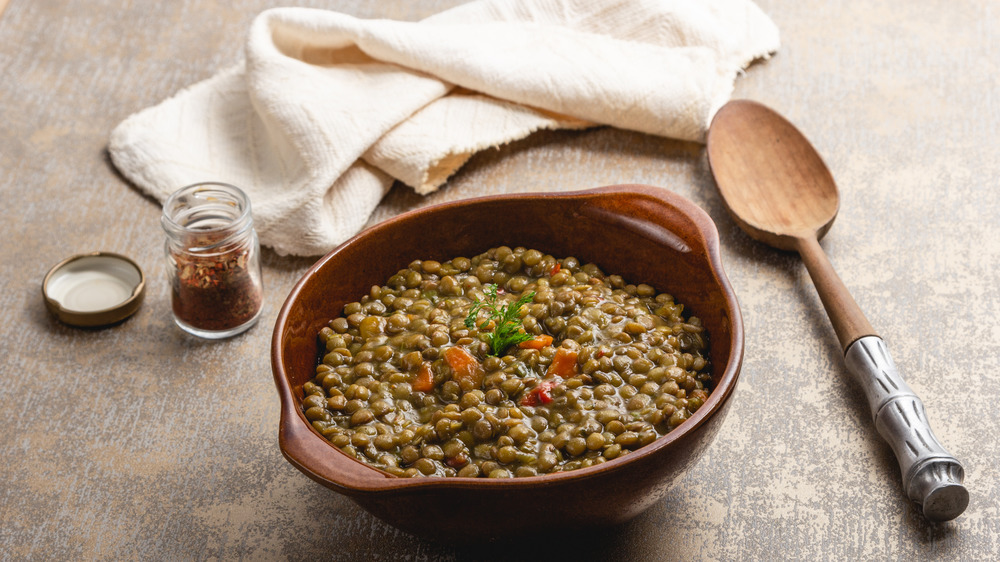When You Eat Lentils Every Day, This Is What Happens To Your Body
Lentils tend to be an underrated food. They have a similar flavor and nutritional profile to that of dried beans, and they can be used to create a number of delicious dishes including salads, chili, and soups. Turkish red lentil soup, with its hints of pepper and mint, is a must-try, as is Dorinda Medley's kale-enhanced version. Sure, Bobby Flay might hate lentils, but then, who cares what Bobby Flay thinks? A bunch of his fellow chefs sure don't, so you shouldn't let him steer you away from trying lentils if you're not already familiar with them. While they are not heralded as a superfood, lentils may have a few special powers of their own, such as the ability to help you sleep and even prevent wrinkles.
In search of more info on the merits of one of our favorite underappreciated legumes, Mashed spoke with Jamie Hickey, NASM, who is both an FMS-certified trainer and an ISSA-certified nutritionist as well as being the founder of Truism Fitness. Hickey extols the benefits of eating lentils every day, which include the fact that they are "great sources of protein and fiber," as well as being "nutrient-enriched."
How lentils benefit your health
Hickey says that eating high-fiber foods such as lentils every day can "push excess waste through your digestive system, helping reduce constipation and IBS symptoms." He also notes that lentils are rich in potassium, a nutrient that "will help reduce the adverse effects of sodium and will lower your blood pressure." If you're wondering whether there's a preferred method for cooking lentils, Hickey says "any method you use to cook your lentils isn't going to reduce the nutrients in them." He doesn't recommend eating them raw, however, since "by cooking them you will reduce the antinutrient value." Antinutrients, he explains, "are plant compounds that inhibit your ability to digest certain elements of plant based foods."
Hickey does say, however, that "It is possible to have too much of something even if it's healthy and lentils are no exception." he explains that "the fiber in lentils is very dense and hard for your digestive enzymes to break down which can cause gas and cramping." The recommended amount of fiber he says you should eat per day is 25 to 30 grams and notes that a cup of lentils has 8 grams of fiber. "How much fiber the rest of your diet throughout the day contains," Hickey tells us, "will determine the amount of lentils you should consume on a daily basis."

